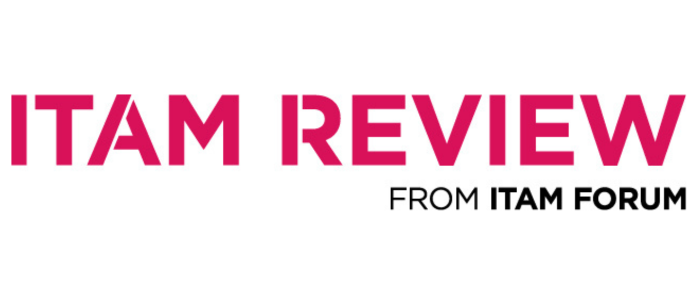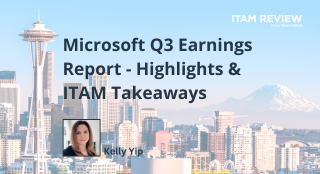Oracle Cloud class action lawsuit - a deep dive
Oracle are facing a class action lawsuit focusing on their cloud sales and whether they used improper tactics to falsify the success of their cloud products. The claim is led by Frankfurt based Union Asset Management Holding AG, an asset manager with almost $400 billion in assets (as of October 9, 2018). We initially covered it last year (here) but, having read the court documents, there is so much more to say!

Just the section headings in the legal documents tell a great story on their own:



But delving into the court documents reveals a fascinating tale!
What is this lawsuit all about?
The claim relates to securities fraud committed by Oracle and the class action lawsuit seeks relief for “violations of Sections 10(b), 20(a) and 20Aof the Exchange Act”.

“Union Asset Management Holding AG brings this action on behalf of itself and all other persons or entities who purchased or otherwise acquired securities of Oracle during the period from March 15, 2017 to June 19, 2018 and were damaged thereby”.
This is a class action lawsuit behalf of all people who bought stocks in Oracle during this 15-month period. The claim is that, due to over-stating their cloud capabilities and sales, Oracle have been fraudulently inducing people to buy stocks in their company.
Background Info
Their information comes from various sources such as Oracle’s SEC filings and analyst reports, and two very interesting additional sources are:
- Accounts from former Oracle employees
- Documents obtained from the National Economic Prosecutor’s Office of Chile (the “FNE”)
I covered the FNE’s investigation into Oracle here and have said it would be good to see similar investigations in other countries. While this isn’t quite that, it’s good to see the FNE’s work being put to a wider use.
Setting the scene
The documents start by saying that:
“Larry Ellison, Oracle’s founder and strategic visionary, made a critical blunder by underestimating a fundamental shift in database technology [cloud]”
and go on to say that:
“By the time senior management recognized this tactical error, Oracle was years behind its competitors in creating and selling the new technology, causing its revenues to stagnate”.
Who is involved?
The suit names several key Oracle executives as defendants:
- Safra Catz, co-CEO
- Mark Hurd, co-CEO, (currently on medical leave)
- Larry Ellison, CTO and Chairman of Board of Directors
- Thomas Kurian, (then) President of Product Development (now Google Cloud CEO)
- Ken Bond, Senior Vice-President of Investor Relations
- Steve Miranda, Executive Vice President, Oracle Applications Product Development
Oracle sources for the plaintiff
The claim is based on information from a variety of Oracle related sources including:
- Regional Sales Director for MEA (Middle East & Africa)
- Vice President in Cloud Sales, North America
- Senior Technology & Cloud Sales consultant, Southern California
- Vice President of Global Sales Engineering
- Director of Cloud Customer Success
- Channel Sales Rep, Northeast region
- Regional Technology Sales Director, Czech Republic, Hungary, and Slovakia
- Cloud Platform Sales Manager, North America
- Director of Cloud Customer Success and Customer Experience
Some of these former staff members had been at Oracle for 8 years and reported into people very close to the execs named above.
What does it allege?
The plaintiff states that Oracle “resorted to systematically coercing and bribing” their existing customers to purchase their new cloud products. They claim that Oracle hid these tactics from investors and simply reported “explosive” growth of their cloud products”. However, according to the plaintiff, by June 2018 customers were refusing to renew the short-term subscriptions they’d been made to purchase “under duress” – which caused Oracle’s sales to decline. This caused the stock to drop in price and then, when Oracle thereafter decided to stop being as transparent with their cloud sales reporting, the stock dropped again.
The period in question begins on March 15, 2017 when, after posting 110% YoY cloud growth to $1.2 billion for the quarter, Oracle co-CEO Safra Catz proclaimed:
“our pivot to the cloud is now clearly in full swing…But more importantly, the increase in revenue from our cloud business has overtaken new software license business decline on an annual basis”.
The following quarter, Oracle reported increased quarterly sales of $1.4 billion, and Safra Catz said:
“We continue to experience rapid adoption of the Oracle Cloud, led by the 75% growth in our SaaS business in the fourth quarter. This cloud hypergrowth is expanding our operating margins, and we expect earnings per share growth to accelerate in fiscal 2018”
While co-CEO, Mark Hurd, added rejected rumours they were boosting cloud sales through aggressive tactics saying they were “inaccurate…rumor…[that was] absolutely not true”.
Analysts are taken in
The statements were clearly working on the market and financial analysts, with Barron’s saying:
“The fact that Oracle’s main product isn’t dead, and maybe even thriving in the cloud era, allows everyone to focus on the rest of the company”
And that cloud is “growing fast enough to offset declines in Oracle’s traditional software outside of its database”
All this led to, according to the court documents, Oracle shares being at the “the highest multiple…since 2008” and hitting a high of $52.97 – a great deal for investors.
June 22, 2017, saw Business Insider report that over 20 Wall Street analysts raised their prices on Oracle, while Macquarie also increased their price after Oracle reported its “best quarter in years”. The same day saw William Barr analysts state that Oracle had “crossed the cloud chasm” and would see “higher sustained revenue growth”.
One can certainly see how this would all look very attractive to investors.
Financially Engineered Deals
The court documents talk about two sales tactics that Oracle used to “coerce cloud-based sales” from their customers, using forced, short-term subscriptions to bolster their cloud business.
Audit, Bargain, Close (ABC)

Using this tactic, Oracle would audit on-premises customers and upon finding violations, would threaten large penalties…unless the customer purchased cloud. Typically, the violation would be organisations caught out by Oracle’s tactic of enabling add-ons by default, and thus being found “using” software they hadn’t purchased.
It is alleged that LMS and the sales teams worked in tandem to identify large accounts and that, in some cases, the sales teams would write letters that the LMS team then sent to customers. Once customers had bought the cloud, LMS would close the file – without even a follow up to review the licensing position.
Attached Deal

Here, Oracle would offer significant on-premises discounts…IF the customer also purchased some Oracle Cloud. It is alleged that customers believed they were simply receiving a free trial of the cloud software, while internally Oracle would book the deal as full price cloud revenue with discounted on-premises software attached.
Impact of these tactics
It’s claimed a $120 million deal with the Saudi Telecom Company had $22 million of “attached” cloud – even though government regulations meant they couldn’t use a datacentre located outside of Saudi Arabia!
The documents state that, according to “numerous former Oracle cloud sales executives”, between 65%-90% of team’s sales were achieved via these “financially engineered deals”. They make the argument that customers were not truly buying cloud, but rather buying discounts on non-compliance fines and on-premises licenses. For example, it is said that less than 9% of the MEA region cloud subscriptions were renewed.
Information from the sources (listed earlier) includes that “80% of MEA cloud revenue” was generated through these engineered deals and that it was used to “juice the [cloud] numbers” in other regions. They also say that 90-95% of North American cloud sales had no “use case”, that is – there was no reason for the customer to be purchasing the cloud products.
City of Denver

A CBS reporter, via a FIOA request, obtained various documents relating to an Oracle audit of the City of Denver. Oracle sent an audit letter giving 3 days’ notice (!) and resisted Denver’s attempts to maintain a record of all audit-related discussions. The audit conversations were led primarily by Oracle salespeople using the threat of an audit to force Denver to move quickly, with the final options being:
$8 million without cloud
Or
$6 million with a 1-year cloud subscription
The suit notes that, even though they gave Denver a 5-year proposal, the cloud subscription was only for the first 12 months.
Executive Involvement
It’s to be noted that Oracle denied forcing their customers to purchase cloud against their wishes with Dermot O’Kelly, Senior Vice President – Cloud Systems, EMEA saying:
“[i]t would be wrong to force a company to do something that’s against their will.”
And Ken Bond, Senior Vice-President of Investor Relations, saying they were “fictitious rumour”. In fact, when asked to give an indication of how audit activity related to cloud sales, Bond said:
“This is one of those things where –gets talked about a lot. And I think this is one of those things where the story is a lot bigger than the realities.”
However, several of the suits’ sources claim that Mark Hurd had knowledge of these ABC and attach deals – with one saying that 80% of his engineered deals went to Hurd’s office for approval.
The suit states that the various statements made by Oracle executives, pertaining to the strength of their cloud business, including some already seen and also:
Safra Catz: “Our new, large, fast growing, high margin cloud businesses are driving Oracle’s total revenue and earnings up and improving nearly every important non-GAAP business metric you care to inspect”
Mark Hurd: “[Oracle has] the fastest-growing scale cloud business in the world”
Larry Ellison: “all of Oracle’s cloud businesses are growing rapidly”
Ken Bond: “growth in cloud is actually getting bigger”
Were all “materially false and misleading when made” given they didn’t also reveal HOW these sales and deals were being brought about. The court documents contain many more examples of such statements from multiple quarters across the class period.
Reluctant to renew
As these short-term deals started to expire in late 2017, Oracle struggled with renewals. As customers didn’t want the cloud in the first place, they certainly didn’t want to renew it; sources referenced in the legal case say that renewal rates were “virtually zero” and “less than 15%”.
December 2017 saw Oracle disclose that cloud revenue was “decelerating”, and, between December 14, 2017 and March 19, 2018, they revealed they’re cloud growth rate had fallen from 58% to 32% – a figure “far below” their competitor’s growth rates, with Microsoft reporting 98% growth and Google 85% around the same time.
JP Morgan noted in December 2017 that “many customers are irate with Oracle due to auditing practices on the technology side of the business and have already placed their bets on AWS, Microsoft Azure, or Google Cloud Platform”.
The tide starts to turn

At this point, various analysts started to connect the dots, with Forbes publishing an article entitled “Oracle’s Strong Arm Cloud Tactics – the 2018 model” and the Oracle share price falling almost 10% from approx. $50 to approx. $46.
June 14, 2018 saw JP Morgan announce it was downgrading Oracle shares to “neutral” based on the results of a large-scale CIO survey they had conducted.
On June 19, 2018, Safra Catz announced Oracle would no longer report cloud sales separately and would instead combine them into “Cloud Services and License Support” going forwards. Deutsche Bank said:
“This move implies that Oracle’s cloud growth is largely coming from existing database/apps migrations, not new logos or workload”
Shares then fell to $42.82 on June 20, 2018.
The suit lists dozens of industry analysts and sites running articles wondering about the tactics being used by Oracle, including Forbes, CRN, Information Week and more.
CCL saw it first
It is noted in the court documents that Martin Thompson, founder of ITAM Review and the Campaign for Clear Licensing (CCL), highlighted the potential for this to occur in an open letter to Oracle, published at the turn of 2015.
“[CCL] then sent a letter on January 6, 2015 to Defendant Ellison and Oracle’s Board of Directors, including Defendants Hurd and Catz. In that letter, [CCL] and Mr. Thompson specifically cautioned Defendants Ellison, Hurd, and Catz that they needed “to take steps to improve the trust of your customers … if you wish to succeed in migrating them to your cloud computing services.”
The letter also stated:
“if Oracle does not address these concerns then the company’s ability to meet its stated $1 billion cloud sales target next year, together with the longer-term outlook for its cloud computing business, will remain in doubt”
Insider sales?
As well as the underhand tactics being used to create and prop up cloud sales, the suit also notes that 22-year Oracle stalwart Thomas Kurian, then President of Product Development at Oracle – and responsible for leading their transition to the cloud, started selling a significant number of his personal shares. During the class period (March 15, 2017 to June 19, 2018) he sold almost 4 million shares which amounted to over $191 million. The court documents detail how a number of these stock sales came shortly before Oracle announcements which caused the share price to drop.
Potentially relevant is that Kurian took a leave of absence at the start of September 2018, and then resigned before the month was out. Apparently, this related to a falling out with Ellison over whether Oracle should open up more of their portfolio to run on Amazon AWS and Microsoft Azure.
Crux of the case
The suit states:
“Had Defendants disclosed complete, accurate, and truthful information concerning these matters during the Class Period, Lead Plaintiff and other Class members would not have purchased or otherwise acquired Oracle’s securities or would not have purchased or otherwise acquired these securities at the artificially inflated prices that they paid”
They say that Oracle knowingly made false statements about the strength and vitality of their cloud business, which caused 100s or 1000s of people to purchase Oracle stocks at inflated prices. The suit is looking to obtain “relief” (or compensation) for this on behalf of not just lead plaintiff, Union Asset Management Holding AG, but also all the other individuals and organisations affected by this.
Prayer for relief

The suit is asking the court to award:
- Compensation to all class members for an amount to be proven at trial, plus interest
- Costs and expenses including attorney’s fees etc.
- Equitable/injunctive relief as the court sees fit
Conclusion
The evidence listed in the suit appears quite damning and certainly paints what appears to be a very clear picture of Oracle using audits and discounts to coerce customers into purchasing cloud they didn’t want, all to artificially inflate their cloud revenue numbers.
That Oracle would do such things won’t be hard to believe for those with knowledge of the company, but it is very interesting to see it all laid out in these hugely illuminating court documents.
Although this case is financially focused, one can’t help but consider what it could mean for the future of Oracle’s auditing practices. If it is proven that they used tactics such as ABC and Attach deals to force customers into unwanted purchases, surely it would make sense that action is taken to prevent it from happening again? The court can award injunctive relief – that is, to order Oracle to stop doing certain things; could Oracle be ordered to stop auditing customers, at least in certain ways? If so, what oversight or restraints could be put in place to ensure changes are actually made?
As some vendors in the industry become more aggressive with their audit tactics, there is a general feeling that if an audit case was taken to court and a decision given, it may serve to restrict what is/isn’t allowed in an audit situation. This, however, relies on an organisation to put themselves at significant financial risk should they lose such a case. Perhaps this case will see a light shone on a vendor’s audit practices in such a way as to highlight what can and cannot be allowed in the future.
Further Reading
Court documents – https://www.blbglaw.com/cases/00330/_res/id=Attachments/index=0/BLBG-#1278452-v1-2019-03-08_(Dkt__40)_Oracle_Consolidated_complaint.pdf
Barron’s: “Oracle conquers the cloud” – https://www.barrons.com/articles/oracle-conquers-the-cloudjust-in-time-1498279504
Forbes: Strong Arm Cloud Tactics – https://www.forbes.com/sites/danwoods/2018/05/21/oracles-strong-arm-cloud-tactics-the-2018-model/#b3c2ac824af7
Can’t find what you’re looking for?
More from ITAM News & Analysis
-
Broadcom vs Siemens AG - A Brewing Storm
The ongoing legal battle between VMware (under Broadcom ownership) and Siemens is yet another example of why ITAM goes far beyond license compliance and SAM. What might, at first glance, appear to be a licensing dispute, ... -
Shifting Left Together: Embedding ITAM into FinOps Culture
During one of the keynotes at the FinOps X conference in San Diego, JR Storment, Executive Director of the FinOps Foundation, interviewed a senior executive from Salesforce. They discussed the idea of combining the roles of ... -
Addressing the SaaS Data Gap in FinOps FOCUS 2.1
I recently reported on the FinOps Foundation’s inclusion of SaaS and Datacenter in its expanded Cloud+ scope. At that time, I highlighted concerns about getting the myriad SaaS companies to supply FOCUS-compliant billing data. A couple ...
Podcast
ITAM training
Similar Posts
-
Microsoft Visual Studio Licensing Guide: Reduce Risks
(This article was reviewed and updated on 3 July 2025) Visual Studio Licensing Visual Studio subscriptions are licensed Per User with each licensed user able to. “install and use the software on any number of device”. ... -
Broadcom vs Siemens AG - A Brewing Storm
The ongoing legal battle between VMware (under Broadcom ownership) and Siemens is yet another example of why ITAM goes far beyond license compliance and SAM. What might, at first glance, appear to be a licensing dispute, ... -
Microsoft Power Apps: Current Pricing Models Comparison
Back in November 2021, Microsoft made Power Apps available under the pay-as-you-go (PAYG) model, alongside the traditional Per User/Per App options. This PAYG model has gained popularity. It ensures simple rightsizing for Power Apps environments. Here, ... -
Microsoft Q3 Soars as AI and Azure Growth Fuels Market Gains
On the 30th April, Microsoft released its Q3 quarterly earnings report, exceeding expectations and igniting investor optimism. Investors had been keeping a watchful eye on Azure’s Cloud performance after Microsoft’s Q2 Cloud results fell short of ...




